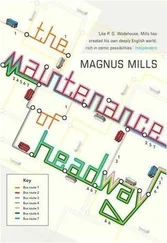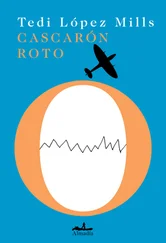Magnus Mills - Screwtop Thompson
Здесь есть возможность читать онлайн «Magnus Mills - Screwtop Thompson» весь текст электронной книги совершенно бесплатно (целиком полную версию без сокращений). В некоторых случаях можно слушать аудио, скачать через торрент в формате fb2 и присутствует краткое содержание. Год выпуска: 2010, Издательство: Bloomsbury, Жанр: Современная проза, на английском языке. Описание произведения, (предисловие) а так же отзывы посетителей доступны на портале библиотеки ЛибКат.
- Название:Screwtop Thompson
- Автор:
- Издательство:Bloomsbury
- Жанр:
- Год:2010
- ISBN:нет данных
- Рейтинг книги:5 / 5. Голосов: 1
-
Избранное:Добавить в избранное
- Отзывы:
-
Ваша оценка:
- 100
- 1
- 2
- 3
- 4
- 5
Screwtop Thompson: краткое содержание, описание и аннотация
Предлагаем к чтению аннотацию, описание, краткое содержание или предисловие (зависит от того, что написал сам автор книги «Screwtop Thompson»). Если вы не нашли необходимую информацию о книге — напишите в комментариях, мы постараемся отыскать её.
Screwtop Thompson — читать онлайн бесплатно полную книгу (весь текст) целиком
Ниже представлен текст книги, разбитый по страницам. Система сохранения места последней прочитанной страницы, позволяет с удобством читать онлайн бесплатно книгу «Screwtop Thompson», без необходимости каждый раз заново искать на чём Вы остановились. Поставьте закладку, и сможете в любой момент перейти на страницу, на которой закончили чтение.
Интервал:
Закладка:
Magnus Mills
Screwtop Thompson
1.Only When the Sun Shines Brightly
For a long time I lived beside a railway viaduct that took the trains past my house at rooftop level. It was a brick structure almost a quarter of a mile in length, and ran along the far side of our street. This being a busy commercial district, the rail-freight company had at some date closed up the supporting arches and let them out as business premises. Some spaces were rented by wholesalers who used them for warehousing. Others had been converted into workshops. The one opposite me was presently occupied by a joiner called Nesbitt. It was a noisy place, with lathes and power-saws going at all hours of the day, augmented every now and then by the trains trundling overhead. A locomotive pulling a heavy load could make all the buildings vibrate as it went past, but fortunately the line was only used for shunting and therefore traffic was infrequent. To tell the truth, I quite liked all the coming and going. It was nice arriving home in the afternoon and seeing the joiner’s shop in full swing, especially when Nesbitt had a big job underway. On these occasions there would be staircases or window sashes leaning on the outside wall awaiting collection, while he and his two assistants busily prepared the next piece. One of these helpers was a youth who was supposed to be serving an apprenticeship, but seemed actually to spend most of his time sweeping up wood shavings. The other was an old hand called Stanley. Nesbitt’s business methods appeared at first glance chaotic, as he tended to write down his estimates on used envelopes which he then inevitably lost, but the fact that he always had plenty of work was testimony to his basic abilities. I used to go over to the workshop sometimes and have a cup of tea with the three of them. Most days, however, I just gave a cheery wave as I passed by.
Early one morning at the beginning of autumn I heard an odd sound coming from outside. At first I thought I’d been woken by the first shunter of the day, which generally went down the line at about five-thirty. This struck me as unusual because I’d become quite accustomed to all the din and could ordinarily sleep through anything. I lay listening for a few moments, and soon realised that it wasn’t a train I’d heard. Instead, there came from the direction of the viaduct an irregular flapping noise, as of great wings being beaten. A bit of a breeze seemed to have got up during the night, which was nothing unusual at this time of year, and whenever a gust battered against my window the flapping became more noticeable. Yet for some reason I still couldn’t think what might be causing it.
Eventually I decided it was time to get up, so I dressed and opened the blinds. It was barely daylight, but I couldn’t help seeing an enormous plastic sheet caught up on the viaduct wall above Nesbitt’s workshop. Somehow it had become entangled in the iron railing that ran along the top of the wall, and now hung outstretched in the breeze like some immense flag.
I wondered where on earth it could have come from. Pieces of debris quite often came flying in as the autumn equinox took hold, items such as polythene bin-liners and carrier bags, but never had anything as big as this arrived. It was a piece of industrial wrapping, possibly twenty square yards in area, and I assumed it must have come adrift from the back of some lorry or goods truck. All the same, it must have been a strong wind to lift such a large bit of flotsam into the air and carry it here. As I made myself a pot of tea I vaguely wondered what Nesbitt would have to say on the matter.
“It’ll work itself free after a while,” he announced, as we stood looking up at the plastic sheet later that morning. “Then we’ll get hold of it and put it to some use.”
Nesbitt was forever talking about ‘putting things to some use’. Quite often he could be observed peering into a builder’s skip and pulling out some object that took his fancy; for example, a barrow that had been discarded because it had no wheel, or an empty cable drum. As a result, the corners of his workshop were piled with junk which he’d decided might come in handy at some future time. It appeared now that he’d seen a possible use for this huge plastic sheet, and as soon as he could get his hands on it, he would claim it for his own.
Unfortunately, getting his hands on it was more difficult than he foresaw. When I came home that afternoon the sheet had failed to free itself from the railings, and if anything seemed to have become fixed even more firmly than before. The weather had been deteriorating all day as the wind increased to a minor gale, and the flapping noise had grown louder and more insistent. Drawing near, I saw that Nesbitt now had a ladder against the viaduct wall, and had sent up his apprentice to seize the prize. The ladder, though, was nowhere near long enough for the task, and as the hapless youth poked desperately with a broom handle he looked as though he was going to lose his balance at any minute.
Nesbitt’s other assistant, Stanley, had taken the opportunity to stop working and watch this bit of ‘sport’ from the workshop doorway, and as I approached he gave me a sidelong wink.
“He’ll never get that down,” he murmured quietly. “Not in a month of Sundays.”
“Why doesn’t he go to the end of the viaduct and walk back along?” I suggested.
“It’s railway property, isn’t it?” he replied. “No one’s allowed up there.”
Meanwhile, Nesbitt was losing patience with his apprentice’s efforts.
“Try and reach up a bit more!” he kept shouting, which only seemed to make the lad look even more unsteady.
“Notice he doesn’t go up there himself?” remarked Stanley, before sidling back to his workbench.
“Come down then!” yelled Nesbitt, before turning to me. “Useless, young lads are these days. Flaming useless.”
I thought for a moment that he was going to give his apprentice a clip round the ear for his troubles, but after he’d carefully descended they simply took down the ladder and put it away. Next thing Nesbitt and Co. were back at work on their latest joinery project, and appeared temporarily to have given up with the salvage attempt. Nonetheless, the presence of the plastic sheet was difficult to ignore. From inside my house I could hear a constant succession of flapping, whacking and flogging noises, and as the hours passed the racket worsened progressively. I knew, however, that I could do nothing about it, so I closed the blinds, put the kettle on, and had a cup of tea. Before coming in I’d noticed large drops of moisture in the gathering dusk. Soon afterwards it was raining cats and dogs, the drainpipes were flowing at full pelt, and I realised that autumn was now well and truly with us.
♦
One of Aesop’s fables tells the story of a wager between the sun and the wind to see which can succeed in removing a traveller’s heavy coat. The wind tries first, but however hard it blows it fails to make any headway because the traveller simply buttons his coat even tighter than before. Only when the sun shines brightly does he finally remove it, and the wind roars away in a bad temper.
I was reminded of this fable several times over the next few days, as the wind seemed to be equally unsuccessful with our plastic sheet. It blew like fury for half a week, but the sheet remained firmly attached to the top of the viaduct. Occasionally it became trapped in the railings at more than one point, bellying out and filling with rainwater which would then be released at unexpected times over Nesbitt’s doorway. At one such instance the poor fellow was standing directly underneath when it emptied its heavy load, drenching him from head to foot.
Читать дальшеИнтервал:
Закладка:
Похожие книги на «Screwtop Thompson»
Представляем Вашему вниманию похожие книги на «Screwtop Thompson» списком для выбора. Мы отобрали схожую по названию и смыслу литературу в надежде предоставить читателям больше вариантов отыскать новые, интересные, ещё непрочитанные произведения.
Обсуждение, отзывы о книге «Screwtop Thompson» и просто собственные мнения читателей. Оставьте ваши комментарии, напишите, что Вы думаете о произведении, его смысле или главных героях. Укажите что конкретно понравилось, а что нет, и почему Вы так считаете.












